Today was International Coastal Clean-up Day and I can’t let it pass without a blog post. After years of beach cleanups as a family, we have come to realise that there is much more to beach cleanups than gathering bags of rubbish along our coastline. What began as an idle gathering of garbage along the beaches that we hiked along, have become part of every visit to the beach… we have to believe that every little bit counts, and so we continue to make the effort. The plastic pollution problem needs to be tackled urgently, and we cannot just be doing beach cleanups, we need to approach this problem at the source as well. We all need to be tending to a plastic free lifestyle. It isn’t impossible, we can do without plastic… and certainly our ocean will thank us when we wake up and start taking this problem seriously.
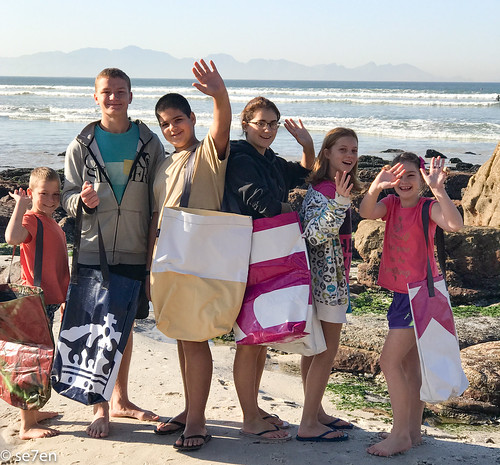
Every year we try to get rid of one more area of plastic in our home, particularly single use plastic. Plastic shopping bags have gone, plastic containers are not replaced, plastic wrap has been gone for about a year now. Our next big step is to just not buy products that are served in plastic. And that is a hard one… we have stopped buying bread that comes in plastic, vegetables can be bought plastic free if you look around, but a lot of our everyday products are sold wrapped in plastic and it is time to make some significant decisions. I was inspired by a recent event at the Two Oceans Aquarium… as consumers we can and should make “plastic free” choices. #PlasticFreeJuly is all about establishing new habits that we can maintain. The Two Oceans Aquarium have been blogging their #PlasticFreeJuly for years now and they just up their game and up their game some more each year. This year they had a function to close out the month and they invited se7en inspirational speakers… to talk about their plastic free journey. I thought I would write about them and give you links to follow them as well…
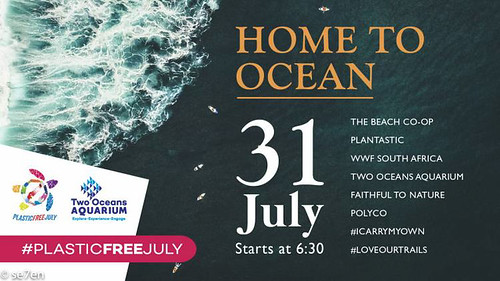
Se7en Green Living Inspirational Talks
The reason for this function was really quite simple, as a nation, we are quite literally addicted to plastic… gulp. I know that is a huge generalisation, but the numbers are telling. 70% of our landfill waste is #singleuseplastic, and South Africa is one of the highest ranked users of #singleuseplastic in the world. In fact, we are ranked as the 11th highest country in the world when ranked by mass of mismanaged plastic waste. We consume 2kg of single use plastic per person per day… How even? I can’t imagine using this much plastic… but I am guessing that there are some heavy heavy users of plastic that are averaging out the balance for those of us who are really trying to live plastic free.
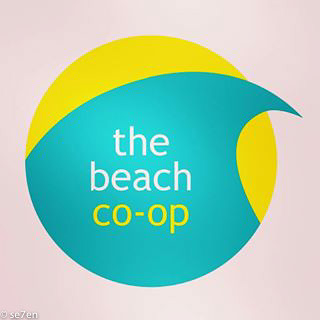
1. Lisa from @theBeachCo_Op:
We clean beaches with the Beach Co-Op every month, we love them because of their ethos, first you learn to love the ocean and then you learn to look after it. Our favourite way to start a day is to head down to Surfer’s Corner and look at all the magical sea-life, and then clean up the area around all the sea creatures. Lisa, representing our friends from the Beach Co-Op, is an inspiration to all for cleaning up our beach environment and has been instrumental in sharing life in Tidal Pools with us.
Three Things She Said:
- The Beach Co-Op is instrumental in a number of beach cleanups every month using the Dirty Dozen methodology. The top 12 types of garbage that we find on our beaches are counted and documented as they are collected. The state of our environment reflects damage to our bodies as well.
- We need to change the way we consume our single use plastics, there needs to be better communication and awareness at a design level of our products. The tourism and hospitality industry needs to rethink their approach to representing greener choices.
- We can empower coastal communities to look after their own tidal pools and marine animals. The greatest danger to our planet is thinking that someone else will fix it.
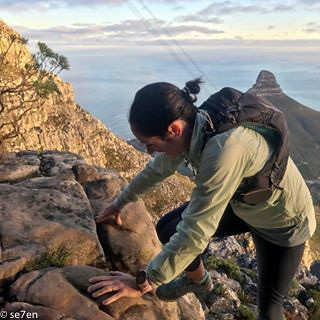
2. Kim, founder of #icarrymyown @Ultramamact
We live in a wasteful culture, where we choose our own goals over the environment. Almost every single road race uses plastic sachets, to provide water to their runners. In an ultra-marathon they may schedule 100 water sachets for each runner… if 25 thousand runners run one of our big local races… that is a lot of plastic sachets to collect up. I have to say, I have never thought about it until I entered my first road race recently an I was appalled to see how many runners think they are helping the clean up crew by throwing their sachets into the drains at the side of the road… folks, all those plastic sachets don’t secretly get collected by a the city council’s special plastic crew, they just get washed straight into the ocean, along with all the other litter that Cape Town collects.
Three Things She Said:
- Some races are plastic free, but runners are resistant to change. Studies have shown that 40% of runners would make the change if rehydration tables were available.
- Fewer water tables, every 5km instead of 3km, already makes a difference. Smaller races need to apply the rules… if you litter you should be disqualified.
- Hydration tables are an option, where you can refill your 500ml water bottle in 3 seconds; or use a bank bag.

3. Mandy, an environmental activist and industrial CEO, from @polyco_sa
From a plastic packaging company, this was a really interesting talk… their industry needs to come up with real purpose driven solutions, as consumers make more informed greener living solutions.
Three Things She Said:
- 80% of our marine pollution originates on land, because people litter. We need intensive education programmes that will encourage people to part with their trash in a responsible manner: solutions have to be convenient, have a workable infrastructure and insentivise the public.
- They came up with Packa-Ching: A community project, where locals can bring their recycling to a trailer, their trash is weighed and measured and members receive cash on a bank card that they can use immediately. A swapping trash for cash system, where 1 trailer can collect a million kg of waste in a year.
- Plastics have a place in our lives, but not in our environment. We need to design for recycling…

4. Hayley, The Environmental Campaigner for The @TwoOceansAquarium and founder of #Rethinkthebag
Three Things She Said:
- 8 Billion single use shopping bags are used in South Africa each year… we have a relationship with our single use plastic, and it is not a good one.
- 96% of our plastic shopping bags end up in the landfill. We could all feel slightly better about it, because we pay a levy towards potential projects when we buy our plastic bags. Only, 1 billion Rand went “missing” from the plastic bad levy fund.
- Choose to refuse, you can break the “You must have a plastic bag for that” rules and simply say No. We would never think to go shopping without our wallet, we need to just learn to go shopping with our shopping bags as well.

5. Blake, basically Superman, @blake_dyason #loveyourtrails
Three Things He Said:
- People’s behaviour is starting to change… it took a while for beach cleanups to gain traction, but he recently was part of Africa’s biggest cleanup. There is a new generation rising up, and they are demanding change.
- The capitalist business model doesn’t work, we need communities to get motivated, government will only react when they have to. Responsibility pyramids work, for instance with Africa’s biggest cleanup, every store manager for Shoprite was responsible for their own cleanup, resulting in a mass action.
- Privileged enough to make the right choice. Stop buying products with single use plastic.
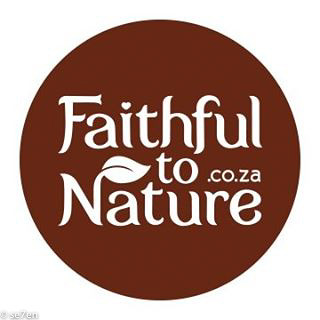
6. Robin Founder and CEO of @Faithful to Nature
We shop a lot at Faithful to Nature, they are our go to, online store for green living. Part of why we choose to shop there is that products are shipped overnight, with no plastic packaging. Otherwise we have found their customer service to be exceptional, they really do go the extra mile.
Ten Things She Said:
- The ocean offers every second breath we take… Let’s talk trash and make reusable s.exy.
- Find alternative products and green shops, and here is a nifty guide to green shopping around Cape Town, right now, For example, Shop Zero and Nude Foods. And obviously, you can get all your green shopping done at Faithful to Nature and make use of their search filters: Cruelty free, vegan, plastic free and so on.
- Shop in bulk because more product per bag means less plastic.
- Make your own products…
- Shop at markets…
- Grow your own… Herbs, spinach, tomatoes, orange and lemon trees.
- Make eco-bricks – stops degredation of plastic
- Think plastic free. Use glass and reuse the plastic you have. Have daily beach cleanups.
- Follow plastic free heroes on Instagram.
- Follow your joy… Save cash, spend time, eat better, living creatively, kids are enlightened and educated.
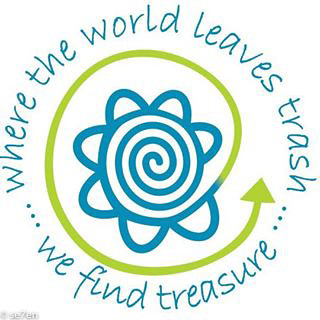
7. Marike and Magriet @Plantasticsa
Make cord stitch plantangles, from plastic shopping bags found all over the world. Each plantangle has a story and you can read them on their website here. 920 bags from 11 countries and five continents have become 400 plantangles. Humble beginnings, I think not (!) and making a difference. 60% of their sales goes back into the Turtle Rehabilitation Programme at the Two Oceans Aquarium and so far they have raised 5-6 hatchlings.
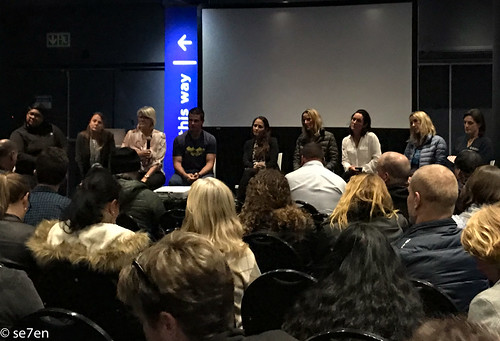
Plastic Free July, The Panel
Solutions to Questions Folk Asked the Panel:
- To design for recycling, means to consider, for example the labelling on packaging. A Plastic container is 100% recyclable, until you paint a label on it.
- Just stop buying products with single use plastic. Consumers have the loudest voice.
- Plastic packaging production has exploded at a rate of 400% a year, they really have to start making sure that their products are the ones that people want to buy.
- Industry has to change and not be afraid that they will lose their profits if they switch to recyclable profits.
- If you want to see change then be the cool person to follow.
- Suppliers want to fall under the #plasticfreetag at Faithful to Nature, insist on full ingredient lists, so that everything is transparent… right down to the plastic in your teabag.
- Big Industry can take critical action… Petco aims to recycle 70-75% of its plastic bottles in the next five years. That’s local consumption and they are able to track where their bottles are going.
- Insist on banning box bands, and plastic wrap at other shipping companies.
- One particular big brand kept coming up, Woolworths claiming to be green and yet so many of their products, that are totally “over packaged” and wrapped in non-recyclable plastic… don’t fuss about it, just don’t buy it.
- This seems to be the sweet season, big business are getting on board and trying to change… a lot of stores have banned the plastic shopping bag completely and others are replacing them with greener options.
- Fourteen other countries in Africa have banned plastic shopping bags, there is no reason why we can’t do the same… that’s at a government level and it could happen.
Huge thank you to the Two Oceans Aquarium for the invitation to their fabulous #PlasticFreeJuly Event. This is not a sponsored post and all opinions expressed are entirely my own.
